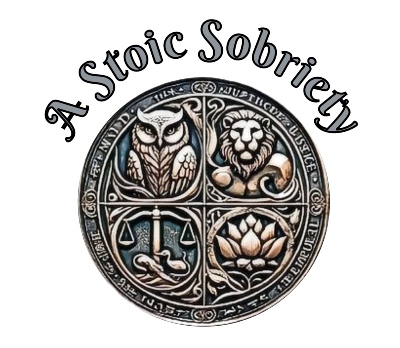Service to Others: The Key to Recovery and a Meaningful Life
When we serve others we unleash a powerful force that should not be underestimated. Most everyone will agree that our survival depends on another human providing us with the gift and grace of their service at one point in time or another. Even the self-made person is not genuinely self-made; along the path, teachers, mentors, and caretakers provide lessons and support. The lessons may have come out of difficult circumstances, and the caretaking may have been meager, but it was there.
The founders of AA built the fellowship on the concept of serving others suffering from alcoholism. Bill W tried to help many before the pivotal meeting with Dr Bob in Akron, Ohio. It is such an integral part of the program that the AA Preamble states: “Our primary purpose is to stay sober and help other alcoholics to achieve sobriety.”
Additionally, the Stoics emphasized serving others as part of a virtuous life. Living a virtuous life is the core tenet of the ancient philosophy of Stoicism, and the Stoics believed there is no virtuous life without service to others. Marcus Aurelius summed it up nicely in Meditations, saying, “That which is not good for the beehive cannot be good for the bee.”
This article will dig into the origins and forms of service others may take and the many benefits. Service to others is typically not purely altruistic unless we are the likes of Mother Teresa, Albert Schweitzer, Harriet Tubman, Gandhi, or the many others who dedicated their lives to the service of others. We get something in return for our efforts, but unless our motives are entirely selfish, receiving these benefits is a positive byproduct of giving ourselves.
The Scientific Basis of Altruism
Research suggests the answer is yes. Evolutionary biology, neurobiology, and psychology support the innate human desire to help others. While self-interest plays a role, research suggests our nature is hardwired for altruism.
From an evolutionary perspective, cooperation and altruism have helped humans survive. Researchers believe we are biologically inclined to help close relatives because it increases the chances of passing on shared genes. Additionally, helping others even outside our family creates social bonds, ensuring that when we need help, others will assist us in return. Groups that work together thrive better than those driven purely by selfishness. For example, early humans who cooperated—by hunting together, protecting each other, or sharing food—had better survival rates than those who lived selfishly.
From a neurobiological perspective, our brain naturally drives us to help others. Helping activates the brain’s reward system. Studies using fMRI scans show that when we help others, the ventral striatum, the brain’s reward center, lights up. When we act of kindness, we stimulate the release of oxytocin (the “love hormone”), which fosters bonding, and endorphins, which produce feelings of happiness. Known as the “helper’s high,” there is a real impact where acts of kindness make people feel euphoric, reinforcing selfless behavior.
Additionally, our brains contain something called mirror neurons. These neurons allow us to feel what others feel. The neurons work when we see someone in pain and we wince. This innate empathy reveals that we are wired to care about the well-being of others.
From a psychological perspective, even babies show signs of altruism. Studies show that infants as young as 14 months will spontaneously help others, such as handing an adult an object they dropped. In 2007, research from the Max Planck Institute found that toddlers helped strangers open doors, retrieve objects, and complete tasks without being asked, proving that altruism emerges naturally.
As noted earlier, altruism is innate, but selfish tendencies also exist. For example, when resources like food and water are scarce, people may prioritize their needs over others. Studies show that this is not always the case, as we realize that cooperation benefits the group in the long run.
Fear and distrust can also drive us toward selfishness. We may hesitate to help because we fear being taken advantage of. The behavior is driven more by self-preservation thinking than pure selfishness. As you can see from the previous paragraphs, humans are wired to serve others.
While he did not have the benefit of modern sciences, the ancient Stoic philosopher, in the second century CE, told us this was our nature. In his Discourses, he said, “What is the essence of human nature? To do good to others, to care for them, to work together.”
The Many Ways We Can Serve Others
I could not imagine trying to compile a list of all the ways we can make positive contributions to the lives of others. These acts can range from simple acts of courtesy to building housing for people without homes and everything in between. I will provide three broad categories that outline the forms good deeds take.
Donating time is one of the most common forms of service. We often choose something close to our hearts when performing acts of this nature. This form typically involves a set block of time for engaging in a specific activity. Working at a food bank or homeless shelter, building or repairing homes, or visiting retirement homes are good examples of this form of giving. There are hundreds if not thousands, of other ways we can donate blocks of our time to benefit others.
Donating Money: Depending on one’s financial situation, donating money can be a charitable gesture or a sacrifice of one’s needs or wants to contribute to improving others’ lives. This form typically provides the least visibility into the benefits others receive unless we give directly to a person or an organization we are involved with, such as a church or food bank. By no means does that devalue the act of giving; we place our trust in the recipient doing good deeds with the money.
Spontaneous Acts of Kindness: There are countless ways to provide this form. These acts happen during daily living as we see opportunities to help others. Helping someone carry groceries to their car, picking up an item dropped by another, helping to clean up a spilled drink, giving a sincere compliment, or opening a door for someone, among many others, are considered acts of kindness. This category is a subset of the donating our time, but rather than blocks of time, we offer snippets as the opportunities arise.
Stoicism and the Call to Service
We all play many roles in life, and the Stoics believed that being of service to others, while sometimes challenging, is a core calling of humanity. Marcus Aurelius said, “In a sense, people are our proper occupation. Our job is to do them good and put up with them. But when they obstruct our proper tasks, they become irrelevant to us–like sun, wind, and animals.”
We can all agree that our experiences with people have run the spectrum from infuriating to ecstatic. I am confident that, for many, dealing with humanity has sometimes driven them to prefer their pets to most people. The reality is that we are all in this together, and the world is a better place when we act for the betterment of one another.
The Stoic Philosopher Seneca reinforces the sentiment, saying, “No one can live happily who has regard only for himself and turns everything to his advantage. You must live for your neighbor if you would live for yourself.” ` As Western society is experiencing a growing sense of individualism, it is vital for the Stoic and those with addictions to remember there are few among us that can live without other people and that doing them good benefits the whole.
The AA Big Book (p. 89) reminds us, “Practical experience shows that nothing will so much ensure immunity from drinking as intensive work with other alcoholics. It works when other activities fail.” Helping others is our protection against the cunning, baffling, and powerful disease of alcoholism. “Serve others” is a simple mantra for every day.
Serving Others in AA: The 12th Step in Action
Simply stated, without service to others, AA would not exist. The practice of AA’s 12th Step has been the bedrock of the program since day one. The 12th Step reads, “Having had a spiritual awakening as the result of these steps, we tried to carry this message to alcoholics and to practice these principles in all our affairs.” In the early days of AA, this often consisted of going to homes, hospitals, and other locations, meeting with those suffering, and spreading the message one person at a time.
At times, the work involved the alcoholic living with AA members, retrieving them from jail or other locations after a bender, and generally being their caretaker. AA was born during the Great Depression when money was scarce, but people had time to give. Some might argue that the timing was divine, and had it not been for the economic situation, people would not have dedicated an immense amount of time and effort to get AA through its infancy.
The AA Big Book (p. 89) reminds us, “Practical experience shows that nothing will so much ensure immunity from drinking as intensive work with other alcoholics. It works when other activities fail.” Helping others is our protection against the cunning, baffling, and powerful disease of alcoholism. If we are struggling with our sobriety, the first suggestion is don’t drink, followed by getting to a meeting, calling another alcoholic, or calling your sponsor. Doing any or all of these are acts of service.
When we engage others to help us, we are helping them to stay sober. AA is a fellowship where we all have a common interest in keeping ourselves sober and helping others to achieve or maintain sobriety. We support one another in our journey to put our lives back together after the destruction we have caused.
Chapter 7 of the Big Book, Working with Others, states, “Your job now is to be at the place where you may be of maximum helpfulness to others, so never hesitate to go anywhere if you can be helpful.” Our maximum helpfulness can be attending a 12-step meeting on any given day. A 12-step meeting is the primary source of shared experience, strength, and hope for the recovering alcoholic. Whether we have 24 hours or decades of sobriety, we give back simply by attending a meeting.
Simply showing up, whether we have something or nothing to share that day, represents our dedication to being sober and available to help others. As we get to know people and learn about their struggles, we will be able to identify ways to help. It can be giving someone a ride to a meeting, sharing our experiences in overcoming similar problems, taking them out for coffee, and being sympathetic.
Conclusion
The bottom line for those with addictions is that we are of no use to ourselves or others if we are in the grips of addiction. It is critical to protect our recovery, and we do that primarily through serving others.
I know it may seem dramatic and repetitive at this point, but the importance of focusing our energy on helping others can be a life-or-death act for us suffering from alcoholism. It may not be an instant or literal death, but death in the form of broken hopes, families, and souls is sure to be had.
I will end this article with one of my favorite quotes about AA.
“Our Twelve Steps, when simmered down to the last, resolve themselves into the words’ love’ and ‘service.’ We understand what love is, and we know what service is. So let’s bear those two things in mind.” -Dr. Bob’s last message, July 30, 1950
Resources
Live to Serve others – Ted Talk – Baruc Lara
Helping others makes us happier — but it matters how we do it – Ted Talk – Elizabeth Dunn




0 Comments